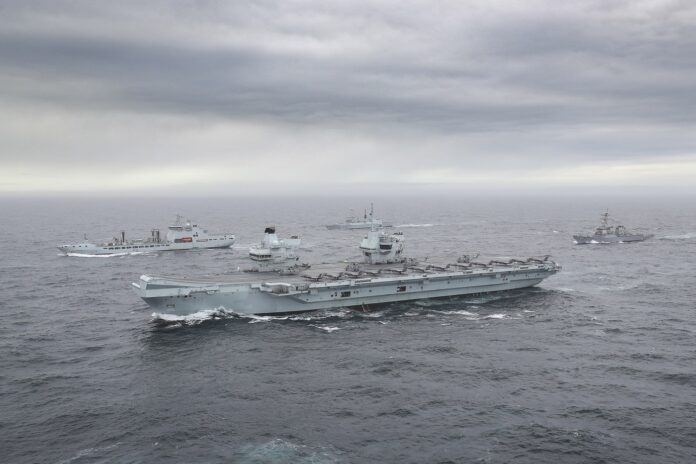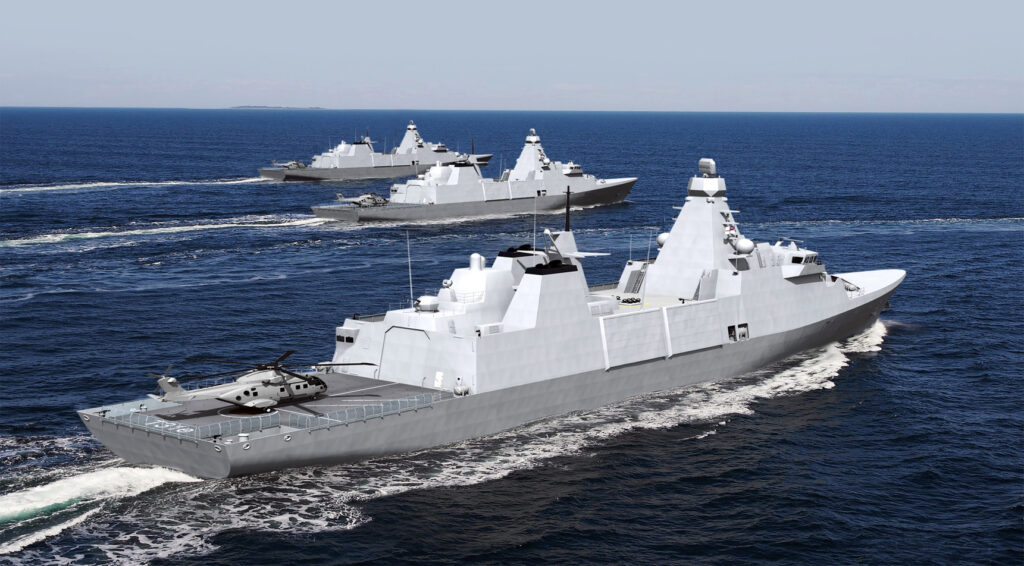
The UK’s Government published its Integrated Review 2021 of Security, Defence, Development and Foreign Policy: Global Britain in a Competitive Age, on 16 March 2021. This review is the largest one since the Cold War and a detailed study of the UK’s approach to the upcoming challenges of the next decade.
The Integrated Review 2021 comprises a huge investment in the Submarine Service spearheaded by the £31bn Dreadnought program and nuclear warheads – as well as the defensive ring protecting the boats from Type 26 frigates to the introduction of a new lightweight torpedo to replace Stingray. This is an important clue of the importance the UK government gives to the Dreadnought program.

Though there were rumors that UK would cut defence budget within the following years, it seems like that the UK plans to spend more at post-COVID era.
According to the Integrated Review 2021, the Royal Navy will operate two aircraft carriers (HMS Queen Elizabeth, HMS Prince of Wales) simultaneously. This issue is very important because it shows the UK government’s intention to deploy its Carrier Strike Groups on the open seas. Besides, more F-35 jets will be bought to deliver carrier strike groups. According to an article shared by Sunday Times, “An order for 90 more F-35 Lightning combat jets is to be canceled in favor of the Tempest fighter, built-in Lancashire, while 24 older Typhoon fighters will be retired early.” The signs of the new procurement of F35B jets to deploy on the aircraft carriers contradicts this surprising news.
New support ships will be built to accompany the task groups on their global deployments. The aircraft carriers of the Royal Navy were fitted with diesel engine, so, they need to be replenished periodically during long deployments all around the world. Logistic plans are vital.
There are also several topics in the review about littoral measures in the future. The Royal Marines’transformation into the Future Commando Force will see green berets permanently deployed overseas more often in two new ‘Littoral Response Groups’, one in northern Europe, a second in the Indian Ocean. They will receive an extra £200m to complete their transformation, plus £50m will be spent converting a Bay-class vessel before new ships are built specifically for littoral strike missions.
The UK has recently increased its activities in the Baltic and Arctic Region. The UK-led maritime group consists of Baltic countries that conducted patrol activities recently, and British special forces hold drills in the cold littoral waters of the Arctic as well. Moreover, a new ‘multi-role ocean surveillance ship’ will be in service in just three years’ time to protect key underwater communications cables. Equipped with advanced sensors it will carry a number of remotely-operated and autonomous undersea drones to gather information on potential threats lurking in the water and is also intended to support front-line operations, such as in the Arctic. We shared an article about the importance of the Arctic Region, the littoral intentions of the Integrated Review 2021 supports the claims in the article.
Shipbuilding and arming plans in the Integrated Review 2021:
According to the Integrated Review 2021, There will be a huge national shipbuilding programme to expand the heart of the Surface Fleet.
Over the next decade, there will be seven new classes of ships being built in British yards, including three classes of frigates: the Type 26, 31, and the new Type 32s.
It means by the start of the 2030s, the Royal Navy will have more than 20 frigates and destroyers, aiming to grow to 24 with the introduction of the Type 32s.

The surface fleet will be armed with the latest weaponry and harness the latest technology including land attack and supersonic missiles for the surface fleet. Sea Viper air defence missiles will be upgraded and their stockpiles increased. And investment in Wildcat and Merlin helicopters will continue.
The greatest technological change will come with a £1bn investment in mine warfare with automated and autonomous mine hunting systems deployed around the world from next year. As a result, first the Sandown-class MCMVs and the Hunts will be replaced by the end of the 2020s.
First Sea Lord Admiral Tony Radakin said the outcome of the review was reward for the hard work made to both transform the Navy over the past couple of years and the daily efforts made on the front line at home and abroad.
“The Integrated Review 2021 is the most wide-ranging for a generation and it sets out the government’s priorities for Defence,” he added.
The Integrated Review 2021 can be summarize in just one sentence: “I am back in the game!“


